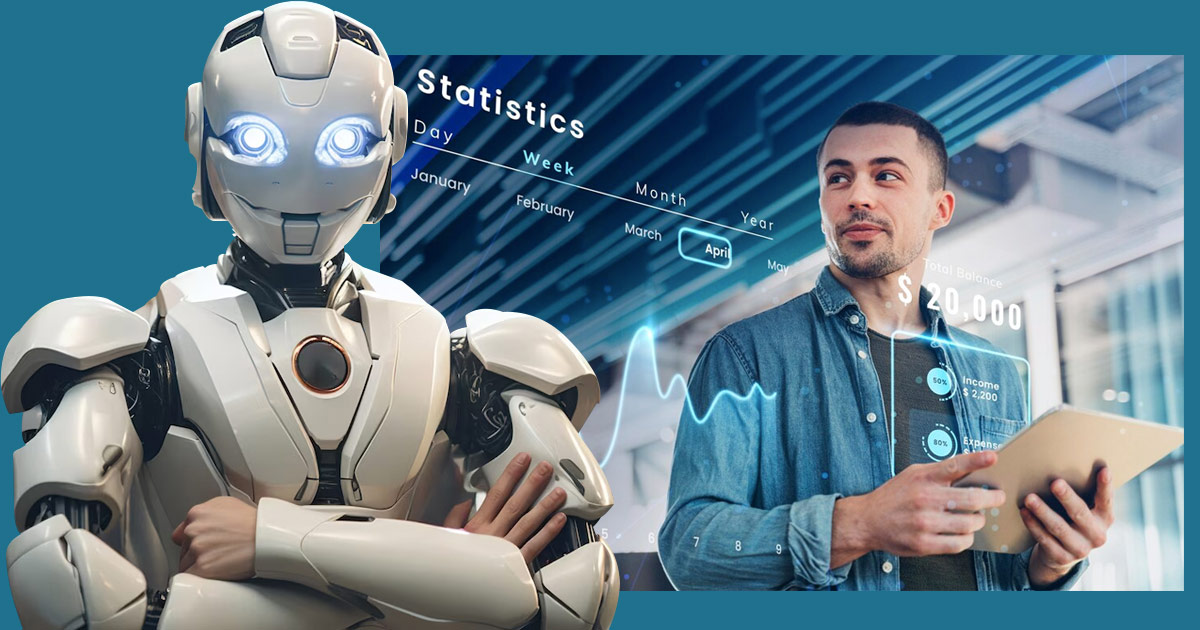12 Careers that AI is Changing

AI is changing the way we work—but it’s not replacing jobs altogether. Instead, AI is transforming existing roles, making them more efficient and data-driven. If you’re in a career that’s being shaped by AI, knowing how to leverage this technology can keep you ahead of the curve. Let’s look at the top jobs that AI is transforming and share some practical tips on how you can thrive in these evolving roles.
1. Marketing Specialists
AI is making a big impact in marketing by automating repetitive tasks like data analysis and customer segmentation. With tools that can personalize content and predict trends, marketing professionals can focus on crafting creative campaigns.
Tip: Use AI tools like ChatGPT for content creation and platforms like Hootsuite for social media scheduling. These tools can automate tasks, allowing you to focus on strategy and creative outreach.
2. Financial Analysts
The finance industry is seeing AI-powered tools that assist with predictive analytics and data processing. These technologies help financial analysts make faster, more informed decisions by identifying patterns in large data sets.
Tip: Embrace AI-driven platforms that offer automated forecasting and data visualization. Familiarizing yourself with machine learning algorithms can help you gain deeper insights and make more precise financial predictions.
3. HR Professionals
AI is transforming HR by automating candidate screening and improving employee engagement analysis. These tools help HR professionals streamline administrative tasks, allowing them to focus on building a better workplace culture.
Tip: Automate repetitive tasks like resume screening with AI-based tools such as HireVue. You can also use AI to analyze employee sentiment, making HR processes more efficient and personalized.
4. Customer Service Agents
AI-powered chatbots and virtual assistants are reshaping customer service by handling basic inquiries and troubleshooting, allowing human agents to address more complex problems. This shift improves response times and service quality.
Tip: Use AI chatbots to handle routine customer inquiries while you focus on solving more challenging issues. AI can also analyze customer feedback in real-time, helping you adjust your service approach quickly.
5. Graphic Designers
AI is enhancing the design process by automating tasks like resizing images, suggesting color schemes, and even generating design ideas. This allows graphic designers to spend more time on the creative aspects of their work.
Tip: Utilize AI tools like Canva’s Magic Resize or Adobe’s Sensei for automatic adjustments and design enhancements. These tools can help you save time on tedious tasks and focus on refining your creative concepts.
6. Data Analysts
AI tools are improving data analysis by automating data cleaning, sorting, and visualization. This makes it easier for data analysts to focus on interpreting insights and making recommendations rather than performing manual data entry.
Tip: Familiarize yourself with AI-driven analytics platforms like Tableau or Power BI. These tools integrate machine learning to uncover deeper patterns and provide more actionable insights from data.
7. Software Developers
AI is being integrated into software development tools to automate coding, testing, and debugging. Developers are using machine learning to streamline repetitive processes, making their work more efficient and less time-consuming.
Tip: Use AI tools like GitHub Copilot to assist with code generation and debugging. Stay up-to-date with AI-based development platforms, such as TensorFlow, to build applications faster and more efficiently.
8. Sales Professionals
AI is changing the sales landscape by automating lead generation and improving customer relationship management (CRM). AI systems can predict buying behaviors and tailor sales strategies to increase conversion rates.
Tip: Integrate AI-driven CRM platforms like Salesforce Einstein to analyze customer behavior. Use these insights to personalize your outreach and increase the likelihood of closing deals.
9. Healthcare Workers
AI is enhancing healthcare by automating diagnostic imaging, analyzing patient data, and assisting with decision-making. These innovations help healthcare workers provide more accurate diagnoses and treatments while improving patient care.
Tip: Learn how AI tools like IBM Watson Health can assist in diagnosing diseases and analyzing medical records. Familiarizing yourself with these systems will allow you to leverage technology to improve patient outcomes.
10. Content Writers
AI is transforming content writing by providing tools for grammar correction, SEO optimization, and content generation. Writers can use AI to enhance their productivity and focus more on storytelling and creativity.
Tip: Leverage AI tools like Grammarly for grammar checks and Jasper for content generation. These tools can help improve the quality and SEO of your content, freeing you to concentrate on creating engaging narratives.
11. Project Managers
AI is making project management more efficient by using predictive algorithms to forecast project timelines and allocate resources. Project managers can focus on strategy while AI takes care of logistical tasks.
Tip: Project management tools now tap into AI to handle repetitive tasks, generate smart summaries, and help set up new ones. For example, Monday.com can auto-update statuses based on progress, while Asana uses AI to suggest next steps and draft project plans.
12. Cybersecurity Analysts
In cybersecurity, AI is used to monitor networks, identify security threats, and respond to attacks in real-time. Machine learning algorithms can detect anomalies and predict potential vulnerabilities faster than traditional methods.
Tip: Use AI-driven platforms like Darktrace to detect and respond to cybersecurity threats. Familiarize yourself with machine learning tools that help identify emerging threats and improve your overall security strategy.
Go Into an AI Field You’re Comfortable In
AI is transforming a variety of industries, but you don’t have to change into a completely new field to reap the benefits. If you’re already working in an industry, exploring how AI can optimize your tasks is a great first step. Focus on learning tools that complement your current skill set and allow you to improve efficiency. It doesn’t matter if you’re in marketing, healthcare, or finance, AI is here to stay, so adapting to it will only enhance your career prospects.
